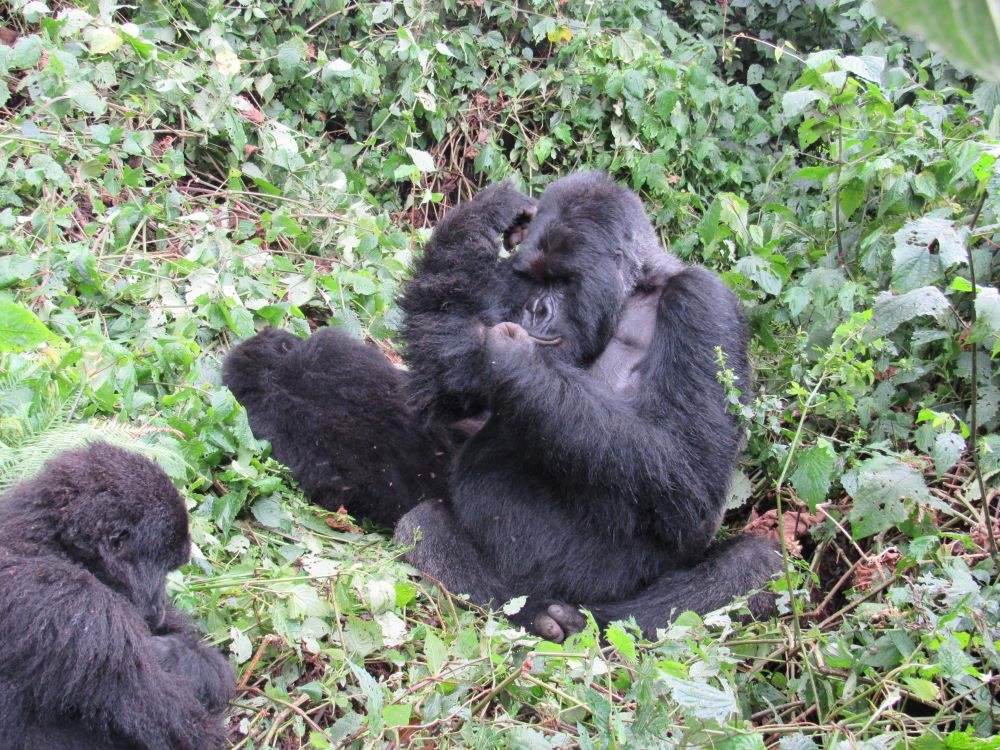“Unique Travel Experiences in Rwanda: Beyond the Gorillas
Related Articles Unique Travel Experiences in Rwanda: Beyond the Gorillas
- Discover The Most Tranquil Lakes Of Thailand
- Journey To The Tranquil Waterfalls Of Portugal
- Mexico’s Best Kept Secrets: Unveiling The Enchantment Of Hidden Lakes
- Experience Portugal Through Its Breathtaking Forests
- Journey To The Hidden Forests Of Switzerland
Introduction
With great enthusiasm, let’s explore interesting topics related to Unique Travel Experiences in Rwanda: Beyond the Gorillas. Come on knit interesting information and provide new insights to readers.
Table of Content
Unique Travel Experiences in Rwanda: Beyond the Gorillas

Rwanda, the "Land of a Thousand Hills," is a nation that has undergone a profound transformation. Emerging from a turbulent past, it stands today as a beacon of progress, resilience, and natural beauty. While the iconic mountain gorillas undoubtedly draw many visitors, Rwanda offers a plethora of unique travel experiences that extend far beyond primate encounters. This article delves into the diverse tapestry of adventures awaiting those who venture into this captivating East African nation.
1. Gorilla Trekking: An Unforgettable Encounter
No discussion of Rwandan travel is complete without mentioning the mountain gorillas. Volcanoes National Park, nestled in the Virunga Mountains, is one of the few places on Earth where these magnificent creatures can be observed in their natural habitat.
- The Experience: Gorilla trekking is a deeply moving and often emotional experience. After a briefing, you’ll embark on a guided hike through dense forests, following experienced trackers who know the gorillas’ movements. The trek can range from a relatively easy stroll to a challenging climb, depending on the location of the gorilla family.
- The Encounter: The moment you come face-to-face with a gorilla family is awe-inspiring. You’ll spend a precious hour observing their interactions – the playful youngsters, the watchful silverback, the nurturing mothers. It’s an encounter that fosters a profound connection with nature and a deeper understanding of these endangered primates.
- Ethical Considerations: Rwanda takes gorilla conservation very seriously. Permits are limited, and strict guidelines are in place to minimize disturbance to the gorillas. The high cost of permits contributes directly to conservation efforts and supports local communities.
2. Chimpanzee Tracking in Nyungwe Forest National Park
While gorillas take center stage, Rwanda is also home to other primates, including chimpanzees. Nyungwe Forest National Park, one of Africa’s oldest rainforests, offers the opportunity to track these intelligent and charismatic creatures.
- The Trek: Chimpanzee tracking in Nyungwe is a different experience from gorilla trekking. Chimpanzees are more active and move more quickly through the forest, making the trek more challenging and dynamic.
- The Encounter: Observing chimpanzees in their natural habitat is a fascinating experience. You’ll witness their social interactions, their foraging behaviors, and their playful antics. Their intelligence and human-like qualities are truly captivating.
- Beyond Chimpanzees: Nyungwe Forest is a biodiversity hotspot, home to a wide array of other primates, birds, and plant life. Guided nature walks offer the chance to explore the forest’s rich ecosystem.
3. Canopy Walk Adventure in Nyungwe National Park
For a unique perspective on Nyungwe Forest, take a walk on the park’s famous canopy walkway. Suspended high above the forest floor, this thrilling experience offers breathtaking views of the surrounding landscape.
- The Walk: The canopy walkway is a 160-meter-long bridge suspended 60 meters above the ground. It’s a safe and accessible way to experience the forest from a different angle.
- The Views: From the canopy, you’ll have panoramic views of the forest canopy, the surrounding hills, and the diverse wildlife that inhabits the area. It’s a perfect spot for birdwatching and photography.
4. Cultural Immersion: Engaging with Rwandan Communities
Rwanda’s rich culture and history are as compelling as its natural attractions. Engaging with local communities offers a deeper understanding of the country’s past, present, and future.
- The Iby’Iwacu Cultural Village: Located near Volcanoes National Park, this village provides an immersive experience into Rwandan culture. You can participate in traditional dances, learn about local crafts, and sample Rwandan cuisine.
- The King’s Palace Museum: Located in Nyanza, this museum offers insights into Rwanda’s pre-colonial monarchy. You can explore the traditional royal residence and learn about the customs and traditions of the Rwandan kings.
- Coffee and Tea Plantations: Rwanda is known for its high-quality coffee and tea. Visiting a plantation offers the opportunity to learn about the cultivation and production of these crops and to sample the finished products.
- Genocide Memorials: Visiting a genocide memorial is a somber but essential experience. These memorials serve as a reminder of the tragic events of 1994 and honor the victims of the genocide. They also play a crucial role in educating future generations and promoting reconciliation.
5. Akagera National Park: A Wildlife Safari Experience
While Rwanda is often associated with primates, it also offers a classic African safari experience in Akagera National Park. This park, located in the eastern part of the country, is home to a diverse range of wildlife, including lions, elephants, giraffes, zebras, and various antelope species.
- Game Drives: Explore the park on guided game drives, searching for the "Big Five" and other iconic African animals.
- Boat Safaris: Take a boat safari on Lake Ihema, where you can observe hippos, crocodiles, and a variety of water birds.
- Walking Safaris: Experience the park on foot with a guided walking safari, getting a closer look at the flora and fauna.
- Night Drives: Discover the nocturnal wildlife of Akagera on a guided night drive.
6. Lake Kivu: Relaxation and Water Activities
Lake Kivu, one of Africa’s Great Lakes, offers a tranquil escape from the hustle and bustle of everyday life. With its sandy beaches, clear waters, and stunning scenery, it’s the perfect place to relax and enjoy water activities.
- Swimming and Sunbathing: Relax on the beaches and soak up the sun. The lake is safe for swimming, and there are several resorts and hotels along the shoreline.
- Kayaking and Canoeing: Explore the lake by kayak or canoe, paddling along the coastline and discovering hidden coves and beaches.
- Boat Trips: Take a boat trip to explore the lake’s islands and peninsulas.
- Hiking and Biking: Explore the surrounding hills on foot or by bicycle, enjoying the scenic views.
7. Birdwatching Paradise
Rwanda is a birdwatcher’s paradise, with over 700 species of birds found throughout the country. From the Albertine Rift endemics of Nyungwe Forest to the savanna birds of Akagera National Park, there’s something for every bird enthusiast.
- Nyungwe Forest: Home to a variety of Albertine Rift endemics, including the Rwenzori Turaco and the Red-collared Babbler.
- Akagera National Park: Offers excellent birdwatching opportunities, with species such as the Shoebill Stork and the Papyrus Gonolek.
- Volcanoes National Park: Home to a variety of forest birds, including the Handsome Francolin and the Grauer’s Swamp Warbler.
8. Kigali: A City on the Rise
Kigali, Rwanda’s capital city, is a vibrant and modern metropolis. It’s a city on the rise, with a growing economy, a thriving arts scene, and a commitment to sustainability.
- Kigali Genocide Memorial: A must-visit for anyone interested in understanding Rwanda’s history.
- Inema Arts Centre: A collective of Rwandan artists showcasing their work.
- Kimironko Market: A bustling market where you can find everything from fresh produce to local crafts.
- Hotel des Mille Collines: The hotel made famous by the movie "Hotel Rwanda."
9. Sustainable Tourism Practices
Rwanda is committed to sustainable tourism practices, ensuring that tourism benefits local communities and protects the environment.
- Community-Based Tourism: Many tourism initiatives are community-based, providing employment opportunities and supporting local businesses.
- Conservation Efforts: Tourism revenue is used to fund conservation efforts, protecting Rwanda’s natural resources.
- Eco-Friendly Lodges: Many lodges and hotels are eco-friendly, minimizing their environmental impact.
10. Hot Air Ballooning over Akagera
A new and unique experience in Rwanda is taking a hot air balloon ride over Akagera National Park. This offers breathtaking aerial views of the park’s diverse landscapes and wildlife.
- Sunrise Flights: Experience the magic of sunrise over the African savanna.
- Panoramic Views: Enjoy unparalleled views of the park’s lakes, forests, and rolling hills.
- Wildlife Spotting: Get a unique perspective on the park’s wildlife from above.
Planning Your Trip
- Best Time to Visit: The dry season (June to September) is the best time to visit Rwanda, as the weather is generally sunny and dry.
- Visas: Most nationalities require a visa to enter Rwanda. You can apply for a visa online or upon arrival.
- Health: Consult your doctor about vaccinations and malaria prevention.
- Currency: The Rwandan Franc (RWF) is the local currency. US dollars are widely accepted.
- Language: Kinyarwanda, English, and French are the official languages.
Conclusion
Rwanda is a destination that defies expectations. It’s a country of breathtaking beauty, rich culture, and remarkable resilience. While gorilla trekking remains a highlight, Rwanda offers a wealth of unique travel experiences that cater to a wide range of interests. From exploring ancient rainforests to immersing yourself in local communities, Rwanda promises an unforgettable journey. As Rwanda continues to evolve and develop, it remains a shining example of what can be achieved through vision, determination, and a commitment to progress. So, venture beyond the gorillas and discover the many treasures that await in the "Land of a Thousand Hills."


